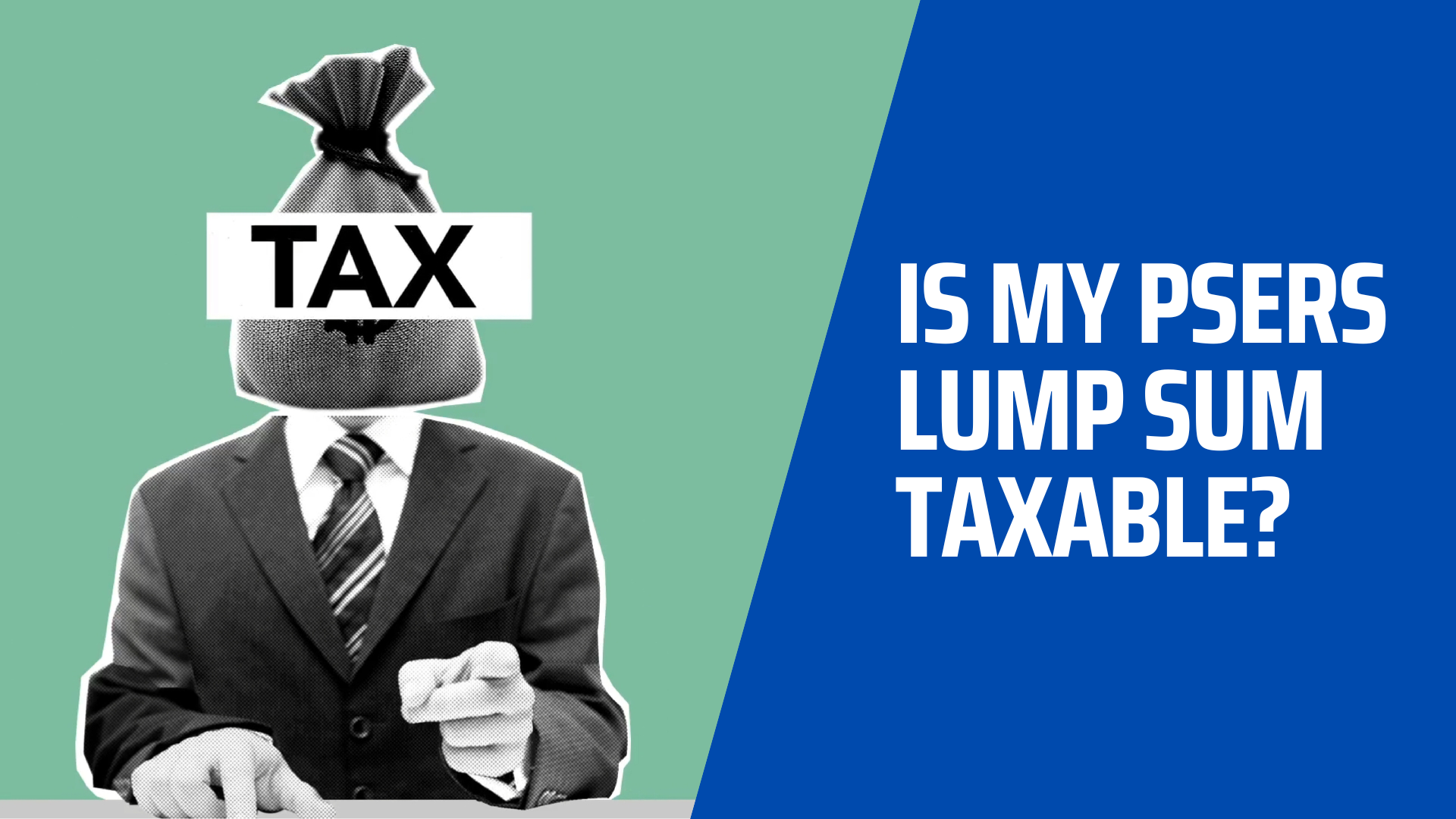*TeachersRetire is not affiliated with, endorsed or sponsored by PSERS*
PSERS members usually have much more flexibility than other retirees when choosing when to start Social Security. You can thank the pension system for that! Since PSERS provides monthly payments that can replace much of your take-home pay, you might not need to start Social Security right away. Retirees who don’t have a pension like PSERS usually rely on a 401(k) or other retirement savings plan and might need the Social Security income early in retirement.
This can give you the power to choose when to start Social Security and be more strategic with your decisions. While this is quite advantageous, determining when it is best to start can be confusing and overwhelming because the question, “When is it best to start?” can be difficult to answer.
This article is going to help make Social Security decisions easier by explaining the reasons why you may want to start your Social Security early, later or somewhere in between. Before we dive in, let’s review the three important ages everyone must know before making Social Security decisions.
Age 62
Most people can start Social Security at age 62. One exception to this rule is for widows who can start survivor benefits on their deceased spouse’s Social Security record as early as age 60. Starting at age 62, or any year before your Full Retirement Age (explained below), is considered taking your benefits “early”. This means that your monthly payment will be reduced permanently. The earlier you begin, the greater the reduction.
Full Retirement Age (FRA)
Everyone has a Full Retirement Age with Social Security. It is based only on your date of birth and it can be found on your Social Security statement or you can reference this chart provided by the Social Security Administration.
By waiting until your FRA to start your benefits, you will receive your full and unreduced monthly payment based on your work record. If you are taking a spousal benefit, you will receive a full unreduced spousal benefit because you are no longer considered starting “early”.
Age 70
You do not have to start your benefits at FRA. You can choose to delay starting your benefits until age 70. You can start benefits at any time after your FRA but age 70 is the latest you can wait. Each year that you wait after FRA, you receive an 8% increase in your benefit. These increases are called delayed retirement credits.
Here is an example of how delayed retirement credits work:
If your FRA is 67 and you wait until age 70 to begin payments, you will have received an annual 8% increase on your monthly benefit for 3 years. This means your monthly payment will be 24% higher at age 70 than it was at age 67.
Is it best to start early, at FRA or wait as long as possible?
There are many theories on when it is best to start Social Security and if you do any online research you will probably come across more than one. Some argue that starting right away is best because you start receiving your monthly benefit right away and could end up getting more money over your life. Others state that waiting until age 70 is best because of the significant increase in your benefit the longer you wait. Others claim the best option is somewhere in between.
While it would be so much easier to make Social Security decisions if there was one right answer, it is unfortunately not that simple. The best time to start depends on your individual circumstances including your financial situation, your family dynamic and your health.
To help make this easier for you, let’s explore the reasons why you might be better off choosing to start as early as possible, waiting until Full Retirement Age, or waiting until age 70.
Should I start at age 62?
Starting at age 62 or any age before FRA means your monthly Social Security payment will be reduced. You can learn more about the reduction for starting early here.
Even though the payment is lower, there are still good reasons to start your benefits before FRA. Let’s explore a few of the potential reasons for starting Social Security early.
I need the extra income to cover my expenses
Most people who start Social Security early do so simply because they need the money. If your PSERS payments and other retirement income are not enough to cover your expenses, claiming Social Security might be the best option. The alternatives might be using your investments and retirement accounts or spending less money each month; neither of which are great options.
I need the extra income to cover my expenses
If you have a serious health condition and don’t expect to live long into retirement, starting your Social Security benefit early might be the best option. This way, you can potentially receive as much money as possible and use it towards expenses or to plan for your spouse and family.
However, this decision might not be as simple as it seems because someone with a serious health condition who has a spouse might be better off waiting to start Social Security. When you pass away, your spouse can likely begin taking your Social Security benefit, if it is higher than their own. If this is the case, it might be best for the surviving spouse if you wait to claim your benefit. This will provide you a higher monthly income while you are alive and the same for your spouse for their lifetime.
Your decision here may also be impacted by which PSERS pension option you choose and what your spouse would receive in terms of PSERS benefits at your death. For example, if you choose a survivor annuity option like Option 2 or Option 3, your spouse might have enough income after your death and not need a higher Social Security payment.
I am retiring before Medicare age with high health insurance premiums
Many PSERS members retire before reaching Medicare eligibility at age 65. This usually means paying some form of relatively higher health insurance premiums between retirement and age 65. While some retirees can cover these costs with just their pension, others may have a harder time making ends meet.
One option to help cover these costs is to pull money from retirement or investment accounts like a 403(b), IRA or 401(k). This might make sense for some people but others may be hesitant to use their retirement savings so early on. Starting Social Security as a way to cover these extra health insurance costs might be the best and most comfortable option available.
Should I Start at Full Retirement Age?
Full Retirement Age is the target starting point for many people. It is often viewed as the happy middle ground between starting early and waiting longer for a higher benefit. Aside from being a middle-of-the-road option, there are several good reasons to consider starting your Social Security benefits at FRA.
I’m healthy but don’t have longevity in my family
You may not have a serious health condition but your family may have a history of shorter life expectancy. This may be a good enough reason to start Social Security at FRA so you can have a chance to get as much money out of the Social Security system as possible.
I want to save my investments for my beneficiaries
Leaving money behind for future generations is often an important goal for retirees. PSERS members can have a particular challenge accomplishing this because neither PSERS nor Social Security are good inheritance tools for your kids and grandkids. This usually leaves retirement accounts, real estate, cash and other Investments as the best inheritance tools.
If you come to a point in retirement where your expenses or more than your PSERS payments and other income, there are usually two options:
- Withdraw money from investments
- Start Social Security
If you are inheritance-minded, you may be better off choosing to start Social Security to supplement your income. This could help preserve your investment and retirement accounts for your beneficiaries in the future.
I want to leave a higher survivor benefit for my spouse if I die first
As previously explained, your spouse can take your Social Security benefit after you pass away if it is higher than their own. If you avoid the penalties for claiming your benefit before FRA, your spouse could have more money via your benefit for the rest of their life. If your spouse’s benefit is higher than yours, waiting until FRA simply to protect your spouse’s future income is not a consideration.
I’m just ready to get my monthly payment
Many retirees start at FRA simply because they don’t want to wait any longer. They may not even need the income but don’t see much benefit to waiting. This is a completely valid reason to get Social Security started.
Should I wait until age 70 for delayed credits?
Waiting until age 70 will provide you with the maximum Social Security benefit. You will accumulate delayed retirement credits for each month you defer Social Security after your FRA. These delayed credits add up to 8% per year. The trade-off to delaying is that you forgo years of receiving your benefit to earn the credits. Let’s look at an example.
Mary’s benefit at FRA (age 67) is $2,500 per month. If she waits until age 70, her benefit would be $3,150 per month. If she starts at age 70, it will take her 12 years (age 82) to “break even” with what she would have received in total by starting at age 67.
Basically, by waiting until age 70, you must receive benefits and live longer to make up for the years you delayed receiving the income. This means that there are only a few good reasons to choose to wait until age 70 for the delayed retirement credits.
I simply don’t need the income at all
If your PSERS benefits cover all of your retirement living expenses and you don’t need to use your investments, it could make sense to wait as long as possible to start Social Security. This could help you leave behind a higher survivor benefit for your spouse when you pass away.
I’m implementing a tax strategy and delaying makes sense
Waiting to take Social Security may play an important role in a tax reduction strategy. Since your Social Security benefits are mostly taxable, many retirees who have substantial benefits could be bumped into a higher tax bracket when they begin.
One strategy that is popular with PSERS retirees is using Roth IRA conversions early in retirement. The general idea is that tax is being paid in a lower tax bracket before Social Security bumps you into a higher tax bracket. Delaying Social Security as long as possible gives you more years to use the strategy. You can read more about the Roth conversion strategy here.
I am still working in retirement
Many PSERS retirees continue to work after they retire and start their pensions. If this is the case, Social Security income might not be necessary until the work income finally stops. Delaying Social Security until this time allows for the benefits to continue to grow and can help avoid paying more tax on the PSERS benefits, working income, and Social Security benefits all at the same time. This could lead to a higher tax bracket.
PSERS retirees often have the flexibility to start Social Security at Full Retirement Age, start early or wait longer for delayed credits. The best choice for you depends on your entire financial picture, income needs, spending, health, and long-term financial goals.



